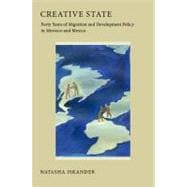
What is included with this book?
| Acknowledgments | p. ix |
| List of Acronyms | p. xiii |
| Maps | p. xv |
| Timeline | p. xviii |
| Introduction: Interpretive Engagement in Morocco and Mexico | p. 1 |
| Discretionary State Seeing: Emigration Policy in Morocco and Mexico until 1963 | p. 27 |
| Reaching Out: Beginning a Conversation with Moroccan Emigrants, 1963-1973 | p. 60 |
| Relational Awareness and Controlling Relationships: Moroccan State Engagement with Moroccan Emigrants, 1974-1990 | p. 86 |
| Practice and Power: Emigrants and Development in the Moroccan Souss | p. 118 |
| Process as Resource: Two Kings and the Politics of Rural Development | p. 157 |
| The Reluctant Conversationalist: The Mexican Government's Discontinuous Engagement with Mexican Americans, 1968-2000 | p. 192 |
| From Interpretation to Political Movement: State-Migrant Engagement in Zacatecas | p. 236 |
| The Relationship between "Seeing" and "Interpreting": The Mexican Government's Interpretive Engagement with Mexican Migrants | p. 274 |
| Conclusion: Creating the Creative State | p. 305 |
| Appendix: Methodology | p. 317 |
| Notes | p. 321 |
| References | p. 331 |
| Index | p. 357 |
| Table of Contents provided by Ingram. All Rights Reserved. |
The New copy of this book will include any supplemental materials advertised. Please check the title of the book to determine if it should include any access cards, study guides, lab manuals, CDs, etc.
The Used, Rental and eBook copies of this book are not guaranteed to include any supplemental materials. Typically, only the book itself is included. This is true even if the title states it includes any access cards, study guides, lab manuals, CDs, etc.